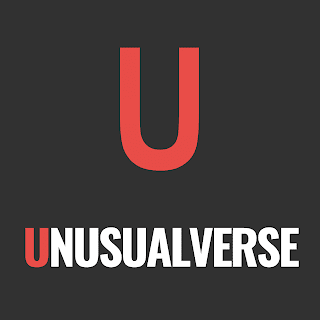Aims & Scope
This website aims to empower Deaf academics by fostering connections and enhancing Deaf Social and Cultural Capital, which refers to the skills, knowledge, and experiences of Deaf individuals that enable them to navigate hearing-dominated environments[1]. By promoting networks essential to career success, this initiative supports Deaf academics in overcoming exclusion within academia.
Networking is recognized as a cornerstone of academic success, providing access to critical opportunities for collaboration, funding, and career advancement. However, for Deaf academics, building and maintaining professional networks often demands significantly greater effort than for their hearing peers. Limited access and support within higher education institutions force many Deaf scholars to invest substantial time in travel and networking activities outside their institutions[2]. The lack of accessible communication resources further restricts their navigational capital, placing them at a disadvantage when competing for visibility, grants, and partnerships[3].
In response to these challenges, the deaf academic community has taken proactive steps by creating international networks and events tailored to their needs. Deaf scholars have boosted international connections by organizing conferences, meetings, writing retreats, and other activities. These initiatives provide guidance and support, particularly for early-career researchers. By offering accessible spaces for collaboration, they exemplify a collective effort to combat systemic exclusion and create opportunities for shared growth[3].
Despite these efforts, Deaf academics continue to face discrimination and marginalization within academia. This exclusion not only limits their ability to build robust networks but also impoverishes the collegial culture of academic institutions. By sidelining Deaf scholars, hearing colleagues lose the opportunity to diversify and enrich their own networks, further perpetuating a cycle of exclusion[4].
The goal of this website is to serve as a virtual safe space that connects Deaf academics across institutions and disciplines, helping them to build and strengthen their networks and consolidate their Deaf capital to ensure they have the resources to thrive in academia.
This website will mainly include articles on Deaf and Deafblind academics, but is expected to expand with other articles on:
What Is an Academic?
An academic is traditionally defined as someone engaged in study, teaching, and research within an educational institution, such as a university or research center. Academics typically possess advanced training in a specific field of knowledge and contribute to the production and dissemination of knowledge through publications, conferences, and other forms of intellectual work. They may take on roles such as university professors, researchers, experts, or intellectuals, all of whom advance their respective disciplines.
At Academia Unusualverse, however, we embrace a broader and more inclusive definition of what it means to be an academic. For us, the title is not confined to those affiliated with universities or research institutions. Instead, we define an academic as anyone who actively contributes to scientific knowledge, participates in research, and engages in critical analysis using scientific methods—regardless of where this work takes place. For example, those who have successfully published studies in peer-reviewed academic journals, even outside formal institutional settings.
Building Your Own Networks
Social capital contributes to career success. Research shows that women need two different social networks for this: one that includes men and one that is for women only[5]. Why?
From their male network, women learn how to climb the corporate ladder and glean insights from male mentors. From their female network, especially with an inner circle of two to four women, women have a forum to talk about issues they might feel uncomfortable sharing with a man, like how a man stepped over them in a conversation, for example. - Susan McPherson. CNBC[6]
Similarly, as a Deaf academic you might need two networks:
- A general network of academics, as knowing how to navigate the hearing world is essential for survival in the competitive academic world.
- A horizontal network of Deaf academics, often international, whom you may have chosen based on shared interests, affinity, or equal status.
References
[1] Greene-Woods, A., Delgado, N. J., Buchanan, B., Sides, M., Behmanesh, A. A., Cheslik, B., ... & Clark, M. D. (2020). Deaf cultural capital and its conflicts with hearing culture: Navigational successes and failures. JADARA, 54(1), 15-30.
[2] O’Brien, D. (2020). Mapping deaf academic spaces. Higher Education, 80, 739-755.
[3] Chua, M., De Meulder, M., Geer, L., Henner, J., Hou, L., Kubus, O., ... & Robinson, O. (2022). 1001 Small Victories: Deaf Academics and Imposter Syndrome. In The Palgrave handbook of imposter syndrome in higher education (pp. 481-496). Cham: Springer International Publishing.
[4] Woodcock, K., Rohan, M. J., & Campbell, L. (2007). Equitable representation of deaf people in mainstream academia: Why not?. Higher Education, 53, 359-379.
[5] Yang, Y., Chawla, N. V., & Uzzi, B. (2019). A network’s gender composition and communication pattern predict women’s leadership success. PNAS, 116(6), 2033-2038.
[6] McPherson, S. (2021, March 31). Career expert: If you’re a woman, research says these are the 2 types of relationships you need to succeed. CNBC











